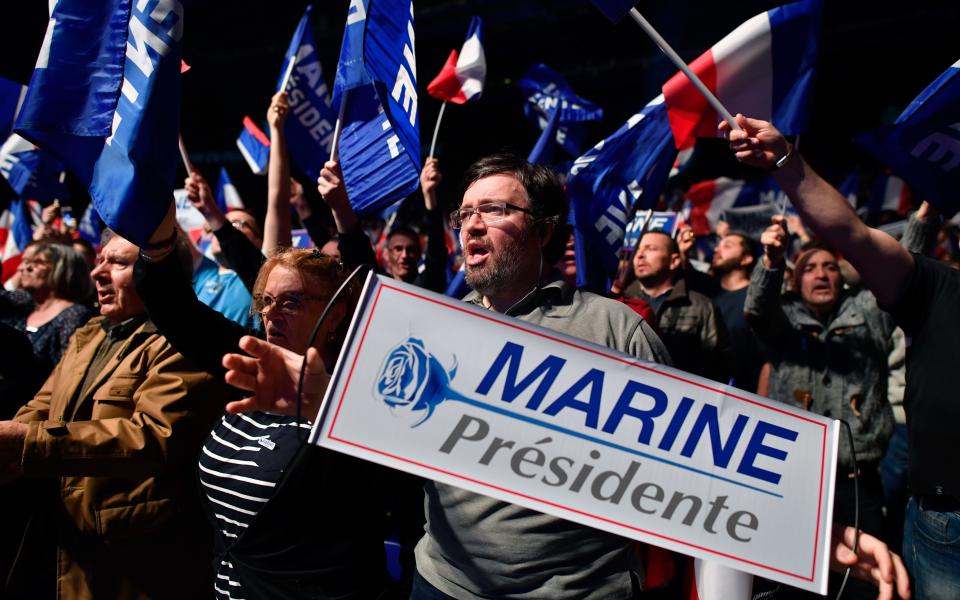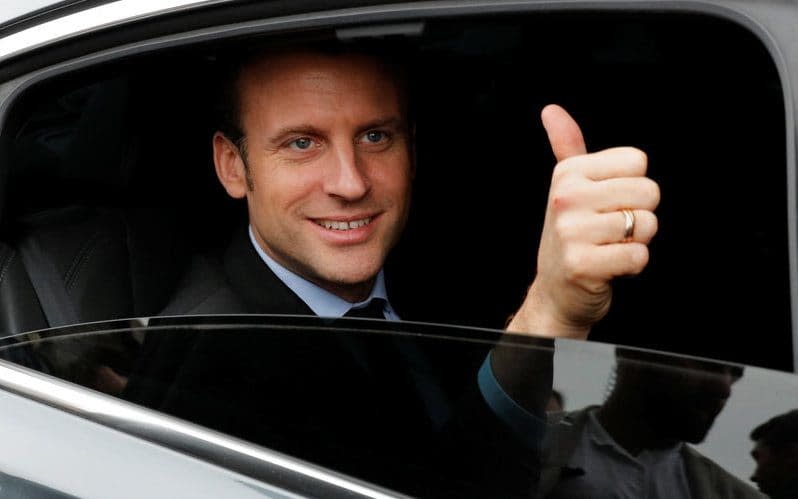Why does the French presidential election matter to the UK?

The French election has always held significance for Britain, since France is one half of the Franco-German axis that has been a determining factor in the direction of the European Union.
France, along with Britain, is also the only EU nation capable of projecting military power independently and, as a fellow permanent member of the UN Security Council, works hand-in-glove with the UK in formulating UN resolutions that shape global politics.
For these two main reasons, the occupant of the Élysée Palace has always mattered to the UK. But in 2017 – the era of Donald Trump, Brexit and the rise of populism across the Continent – this is now doubly the case.
This mercurial election, in which the establishment parties of the Left and Right appear to have fallen by the wayside, will shape the coming Brexit negotiations and could – if far-Right Front National (FN) leader Marine Le Pen wins – even determine the future of the EU itself.
The spectre of Le Pen
With Britain now committed to an exit negotiation with the EU that will define the future of this country for a generation, the prospect of Ms Le Pen becoming French president has the potential to up-end all the preparation for these delicately poised talks.
Ms Le Pen’s FN party is committed to taking France out of the euro and holding a referendum on EU membership if Brussels does not comply with her demands to disband the single currency and end the border-free Schengen travel zone.

Neither of these may be immediately possible, but regional analysts such as Mujtaba Rahman, the head of Europe practice at the Eurasia Group, a risk consultancy, predicts that a Le Pen victory would very likely spark chaos in the financial markets as institutional investors ditch billions of euros of French sovereign debt and flee to the safety of sterling and the dollar.
Even if this crisis can be stabilised, in the longer term Ms Le Pen’s economic nationalism, which like Mr Trump’s own agenda portends a return to protectionism, also threatens to seriously damage the EU’s single market, which is currently the destination for 43 per cent of British exports.
There are some hardcore Brexiteers who believe that a Le Pen victory might be good for Britain’s prospects in the Brexit talks, since it would land a potentially fatal blow on the EU, an institution that they revile.
But this is not a view shared by Theresa May or British negotiators who fear that a shock Le Pen presidency would sow chaos in the EU, making Britain’s negotiating partners even more defensive and hardline, possibly paralysing EU decision-making to the point where it is impossible to do a deal within two years.
The meaning of a Macron win
A win for Emmanuel Macron, the fresh-faced former Rothschild banker, will also impact the Brexit talks, although not as drastically as Ms Le Pen.
Polls show that Mr Macron is very likely to beat Ms Le Pen in the second-round run-off on Sunday, though that is not an absolute certainty.

France has already promised to take a hardline approach with Britain in the coming talks, but Mr Macron has made clear that he will pursue this course with extra vigour, describing the UK as a “vassal state” of Trump’s America that will suffer for its vote to leave the EU.
Mr Macron has promised to lead a “rebirth” of the EU if he wins, a fact that makes him the clear favourite in Brussels where die-hard federalists still dream that Mr Macron – allied perhaps with a new pro-EU German chancellor in Martin Schulz – could bring the bloc out of the doldrums.
In practice, this will not be easy. The millions of French people who will vote for Ms Le Pen will not disappear after the election and Mr Macron is a callow candidate, a former economy minister who has never won elected office and has no conventional political machinery behind him.
His ability to deliver the kind of economic reforms that might convince Germany to take a more expansive approach to deepening Europe’s fiscal union is open to question, as is much of his policy platform.
On the possible marginal upside for Britain, a Macron presidency is likely to restore some confidence in currently shaky Brussels institutions which may be slightly more inclined to cut a favourable deal with the UK.
French election gridRegisterLog incommenting policy

 Yahoo News
Yahoo News 